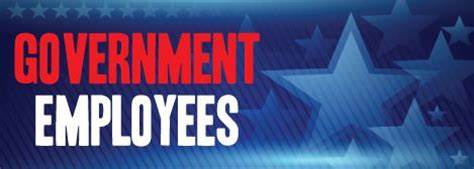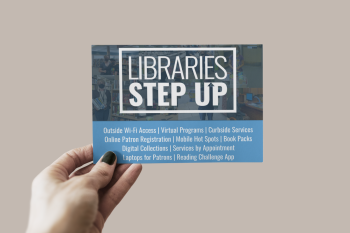Are library staff municipal employees?
Several times each year questions come in from library directors and trustees about what Chapter 43 of Wisconsin Statutes means when it comes to the status of library employees. Another question that often follows from that is why the statute governing libraries was written as it was.
 To begin, let’s address the first question about the status of employees. A question came in this week from a library director who said a municipal board member was making the argument that library employees aren’t really municipal employees because the municipal governing body doesn’t have a say over who is hired.
To begin, let’s address the first question about the status of employees. A question came in this week from a library director who said a municipal board member was making the argument that library employees aren’t really municipal employees because the municipal governing body doesn’t have a say over who is hired.
To begin answering this question, let’s be clear that there is no question that library employees are municipal employees. An FAQ from the League of Wisconsin Municipalities (the League) that addresses Chapter 43 and the special authorities it grants library boards reads: “…while it is clear that the library board has control over the hiring, firing and compensation paid to library employees, we have concluded in the past that library employees are municipal employees and therefore subject to the same terms or conditions of employment that apply to other municipal employees.
The League of Wisconsin Municipalities further states in the FAQ that:
Support for this conclusion exists in a 1939 attorney general opinion which concludes that library employees are “municipal personnel” for purposes of the municipal civil service system statute (then 66.019 but since renumbered to 66.0509). Further support for this proposition can be found in the fact that the legislature amended the statute after the attorney general's 1939 opinion to permit municipal governing bodies to exempt any librarians and assistants from a municipal civil service system.
Relying on that language, the League has taken the position that a library board cannot enact a rule for library employees which is inconsistent with the terms and conditions of employment established by the governing body for all municipal employees. For example, in an opinion written before the legislature limited municipal residency requirements, the League concluded that a municipal governing body’s enactment of a residency requirement for municipal employees would apply to library employees.
So why was Chapter 43 written in a way that gives library board so much authority over the operation of the library? An excellent explanation is provided in Trustee Essentials Chapter 2, which reads:
This charge from the legislature provides library boards, but not individual trustees, with considerable discretion to operate libraries as they deem necessary independent of direct control by other municipal players—city councils, town boards, mayors, village board presidents, etc. In providing this governance structure for libraries, the legislature was attempting to keep library operations under direct citizen control and as far as possible outside the political sphere of government. Compared with other appointed boards, library boards have extraordinary powers and responsibilities. Many other appointed boards can only recommend actions to an elected board or council higher up the ladder of government. Library board actions are made independently of any further approval by other government bodies or officials as long as such actions are within statutory authority.
The independent authority granted to public library boards is intended to protect the historic role of the public library as a source of unbiased information.
The municipal governing body retains the ultimate control over libraries because it controls appointments to the library board and approval of the annual municipal funding appropriation.
In the end, operation of a vibrant municipal library really is a partnership between the library staff, the library board, and the municipal governing body. Each plays a vital role in ensuring that the library serves the needs of all residents, so a positive working relationship is paramount.
SCLS Member Libraries and 2022 County Aid
 The past year has been difficult for libraries, both because they have been unable to fully serve residents in the ways they are accustomed, and also because of the uncertainty about what municipal and county funding might look like going into 2022.
The past year has been difficult for libraries, both because they have been unable to fully serve residents in the ways they are accustomed, and also because of the uncertainty about what municipal and county funding might look like going into 2022.
Libraries are in a unique funding position because their current year (2021) funding from counties is based on expenditure and circulation data from 2019. That means 2022 funding will be based on numbers from 2020, when we know that circulation of libraries materials is down significantly from the prior year.
With the completion of the annual report process we’ve started preparing adjacent county reimbursement calculations for libraries in 2022. Assuming that all libraries will submit reimbursement requests to all of their adjacent counties for reimbursement in 2022 (some don’t when the reimbursement is small), SCLS member libraries are eligible to receive a total reimbursement of $997,441 in 2022. That compares to a total reimbursement of $1,002,887 in 2021, which is a decrease of $5,446 or -0.54%.
Determining the funding counties pay to the libraries within their own county is more difficult to estimate because many counties pay more than the minimum required in State Statute (funding formula explanation). Sometimes that fluctuates year to year based on local budget constraints.
If we calculate each SCLS county’s 2022 reimbursement at the same rate paid in 2021 we come up with the following comparisons. Adams and Portage Counties are not included because they are Consolidated Counties (county-wide library) and don’t pay library reimbursement. Dane County is not included here because its formula is more complicated since it factors in more than just circulation to county residents without a library.
|
County |
2021 Reimbursement |
Projected 2022 Reimbursement |
Change |
|
Columbia |
$565,350 |
$593,643 |
+$28,293 |
|
Green |
$332,792 |
$346,943 |
+$15,151 |
|
Sauk |
$1,081,473 |
$1,076,941 |
-$4,532 |
|
Wood |
$1,095,964 |
$984,727 |
-$111,238 |
Libraries Step Up Advocacy Toolkit Available
 Libraries Step Up is a collaboration between OWLS, Bridges, Nicolet and IFLS library systems to draw attention to all the work libraries did in 2020. They have developed postcards and a toolkit of plug-and-play and customizable communications resources that are available for use by libraries across the state.
Libraries Step Up is a collaboration between OWLS, Bridges, Nicolet and IFLS library systems to draw attention to all the work libraries did in 2020. They have developed postcards and a toolkit of plug-and-play and customizable communications resources that are available for use by libraries across the state.
This effort is to counter the misperception that libraries have been closed during the pandemic. Libraries are encouraged to promote the postcard-writing campaign and the general message through the state, county and municipal budget processes. We want your excellent work to be communicated loud and clear! Empowering your community members to speak up for libraries is a great way to amplify this message to elected officials.
What Can Libraries Do?
Make the postcards available. Identify your key advocates, friends and fans and ask them personally. There’s an email in the Toolkit.
Give people a way to request postcards or just stuff curbside bags with the postcards and bag-stuffer instructions. Alternatively, make a display with poster, instructions and postcards located where people pick up their holds. Libraries can encourage community members to get and send their postcards using social media and posters.
More information and links to toolkit materials are available on the OWLS website. If you have questions about using these materials or just want to talk about library advocacy opportunities, contact Mark Ibach at (608) 246-5612.
Library Legislative Day Follow Up
Library Legislative Day 2021, which was held virtually, went off without a hitch, and links to all the materials and three new videos that feature library patrons from across Wisconsin talking about the impact and importance of their public libraries are available on the Wisconsin Library Association (WLA) website.
We have also embedded the videos here for easier viewing, and libraries are encouraged to embed the videos on their library websites to share within their own communities.
Strong Libraries = Strong Communities
Patron Stories: Lifelong Learning & Literacy -- https://youtu.be/1P9yT_JAZiE
Patron Stories: Access, Workforce Development & Technology -- https://youtu.be/feWjWXxxWOI
Patron Stories: The Pillar of a Community Through a Pandemic -- https://youtu.be/ZKitx9y3re8
